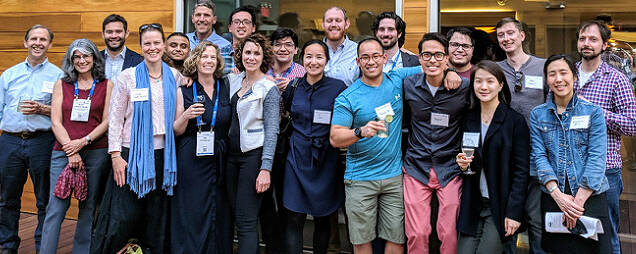Dartmouth Hitchcock Medical Center prides itself on its collaborative and collegiate environment. Our faculty are both highly distinguished and accessible to trainees, with informal, personalized, one-to-one instruction readily available to all our residents. Our Residents get in-depth exposure to tertiary and community care, advanced neuroscience, interventional psychiatry, psychotherapy, specialty clinics, and more. Teaching medical students, scholarship and mentorship are also plentiful.
We offer a 5-year combined adult and child program, and a research track. Dartmouth Hitchcock Medical Center is home to several post-residency fellowships, including child psychiatry, consultation-liaison psychiatry, geriatric psychiatry, addiction psychiatry, sleep medicine and pain medicine, as well as the Leadership Preventive Medicine Residency (LPMR), a popular choice for many of our residents. Participants in LPMR are paid a resident salary to receive a free Master’s in Public Health as part of this program. Many other health advocacy programs and research opportunities are also available, such as the Dartmouth Institute for Health Policy and Clinical Practice (TDI), Dartmouth Center for Healthcare Delivery Science, National Center for PTSD, Center for Neuroscience, Psychiatric research group and the Synergy Center. We also offer a didactic series in advocacy work, led by faculty who are heavily involved in advocacy work themselves.
The Psychiatry Department has an active Diversity, Equity, Inclusion and Belonging committee that functions to improve awareness and training in these important topics. Planned activities include regular Journal Clubs and Grand Rounds focused on diversity, inclusion, and anti-racism as well as updating the residency curriculum to ensure broad and deep coverage of the effects of systemic racism on mental health. Residents rotate through a variety of clinical settings exposing them to a socio-economically and culturally diverse range of patients across Northern New England. Residents also have the opportunity to work in a resident-founded Transgender Mental Health clinic as well as to participate in the Upper Valley Human Rights Clinic writing affidavits for people seeking political asylum.
